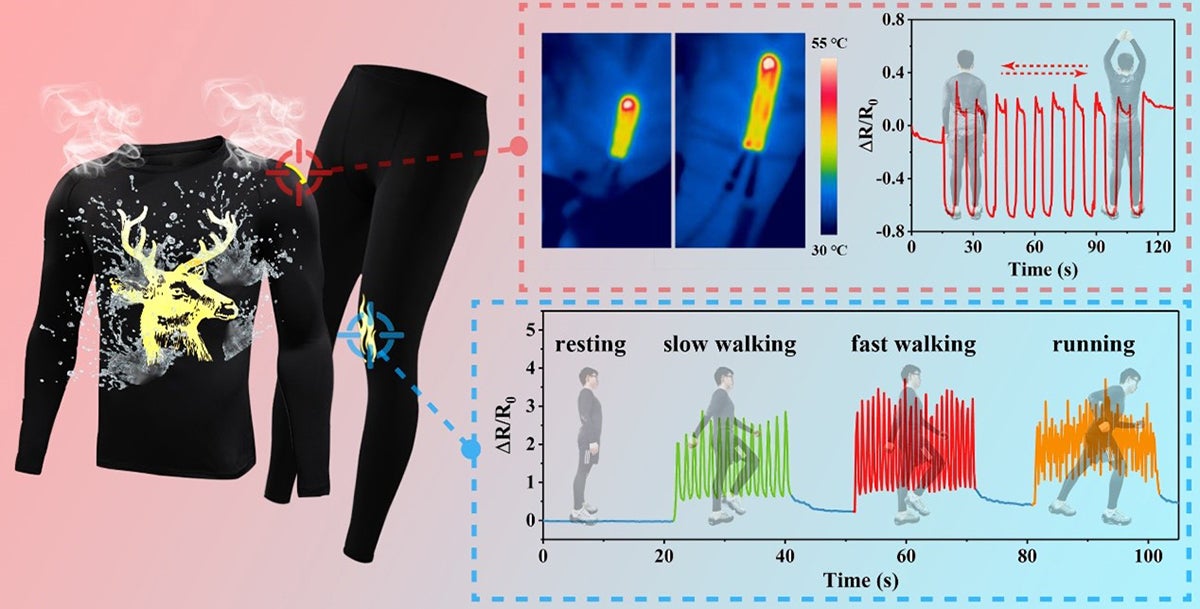lens
A Shirt that Might Help Your Sore Shoulder
 Image: Case Western Reserve University
The printed stretchable smart clothes being developed on campus are designed in part to measure and adjust a person’s body temperature and to detect and track motions in daily activities, whether simple gestures or walking or running.
Image: Case Western Reserve University
The printed stretchable smart clothes being developed on campus are designed in part to measure and adjust a person’s body temperature and to detect and track motions in daily activities, whether simple gestures or walking or running.
Case Western Reserve researchers have developed a novel way to transform an ordinary shirt into an electronic one that can adjust body temperature or apply heat to a sore shoulder. The research comes as the wearable-tech market—think FitBit or Apple Watch—is surging. And now a growing segment includes electronic technology embedded in clothing, implanted in the user’s body, or even tattooed on the skin.
“We believe this is a far better method than other attempts to make truly wearable technology because it not only performs well initially but is durable long term,” said Changyong “Chase” Cao, PhD, who led the research and is an assistant professor of mechanical and aerospace engineering.
The key to the innovation: a highly conductive ink and simple screen-printing process that results in a waterproof, breathable and flexible product that can function as a heating element and track motions when powered by a coin-sized battery.





